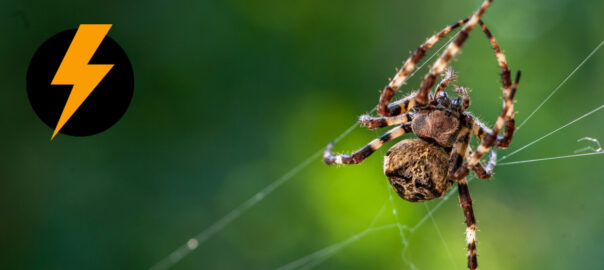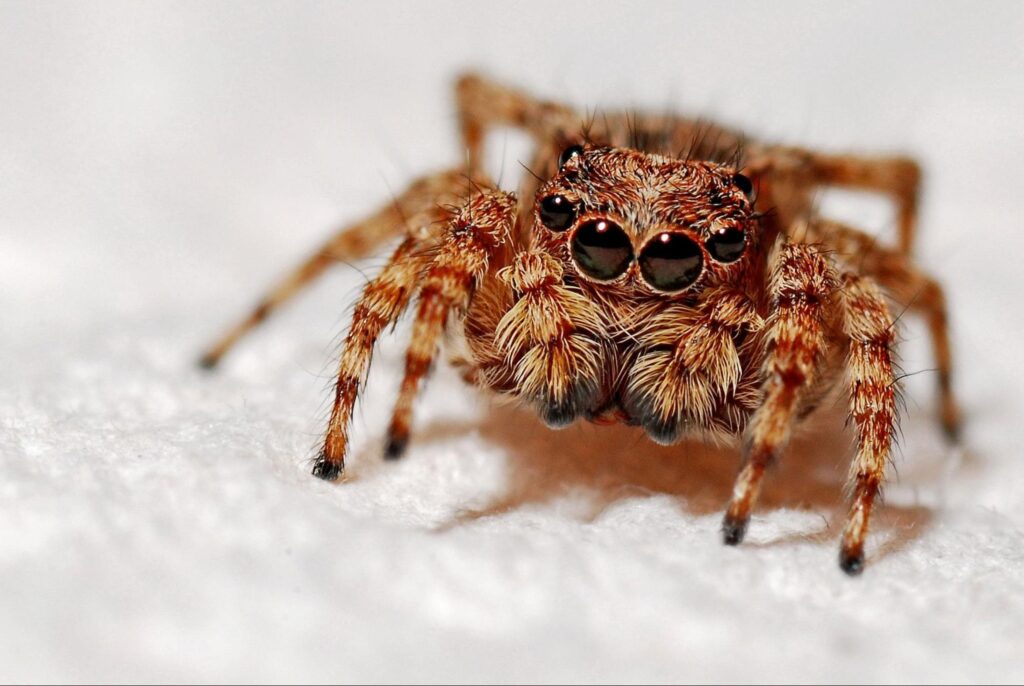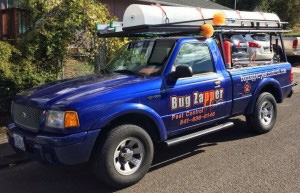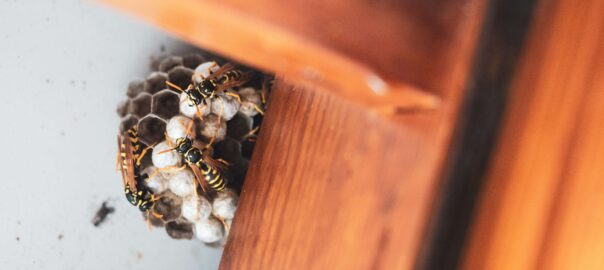Pet-Friendly Pest Control
- (541) 636-0146
- Schedule Service

Spotting a fast-moving frenzy of legs in the dark corner of the kitchen. Getting caught in cobwebs on your way out to the garage, arguing with a significant other about whose turn it is to kill the fuzzy terror scaling the living room wall. Are you familiar with these spider blues? What attracts spiders to invade your home?
Spiders may keep nuisance pests at bay, but when they get inside your home, they become a nuisance of their own. Only one spider species in the Pacific Northwest is a significant danger, the black widow, but that doesn’t mean you want all the others hanging around your living spaces. Unfortunately, you might be inadvertently inviting these tricksy pests inside! Don’t worry—the talented and tested professionals at Bug Zapper know what conditions attract spiders, and we can help you hang a “No Vacancy” sign on your home this season
But before we become master guards against these crawly spinners, we better equip ourselves with some spider bio, their habitat, and behavior, how they come to crawl spaces in our homes, and types of common house spiders.
Read More: How Do Pests Get Into My House?
When humans think of them, Spiders tend to elicit fear and disgust—but they are a fascinating and diverse class. All spiders have eight legs and two body segments—the first of which is the head and the second containing all the other organs. They have two main types of eyes, primary and secondary. Most have between four to eight primary eyes and use them to detect movement and light. Depending on the species, spiders may also have several hundred secondary eyes, used mainly to distinguish patterns that indicate prey is nearby.
Spiders’ ability to spin intricate webs is their most well-known trait. This ability comes from glands toward the back of the spider’s abdomen, producing liquid silk. When this silk is extruded through the spider’s rear legs, it solidifies into a fibrous web. Depending on the type of spider and purpose, it may be a web to catch prey, shelter itself from predators, or even hitch a ride on a gust of wind.
The wide range of species spans the globe and includes a variety of behaviors and habitats. From the water spiders that make diving bells out of air bubbles while underwater to the spider crabs that feed on dead animals and shellfish, spiders are capable of impressive feats. Another remarkable capability of spiders is their ability to sense vibrations, which are used as a warning of danger or to locate prey.

Because they are predators, they naturally hunt and consume insects. Besides, they use interesting techniques to catch their prey. They may execute their attack by producing a ball of sticky silk containing a chemical that attracts the male moth, playing tricks to lure other spiders, and spitting a gooey but poisonous substance.
It may sound freaky when you imagine spiders are creepy crawlers that infest your home. House spiders are naturally found in your attic, basement, bathroom, or any dark and humid space where they hide the most. But before you start hating them, think about the beneficial effects of their existence. They even get rid of insects you want to get rid of—flies and roaches!
Take a peek at a few of the house spiders.
Food, water, and shelter attract spiders. Knowing what they are attracted to can help you better understand why certain spiders end up in your home and how you can keep them away.
Like pretty much everything on the planet, spiders are searching for food. Spiders eat insects (as well as other spiders), so anywhere around your property where there’s a large pest population, the presence of spiders is a sure bet. Pest-proofing your home and routine professional control will eliminate the insect buffet and have spiders looking for meals elsewhere.
Seasonal changes or harsh weather patterns will have spiders scrambling for protection from the elements. Many species of spiders enter hibernation in the winter months and seek a warm, sheltered place to do so. Alternatively, in summer, spiders will seek shelter from the intense heat. Heavy precipitation will also cause spiders to move to dry, protected locations. Replacing broken screens and sealing/caulking all gaps and cracks around the exterior and foundation of the home will prevent entry and force spiders to seek shelter elsewhere.
Spiders breed and make their homes in dark, secluded areas that are adequately sheltered from the elements while providing access to insect food sources. The usual places in a home are basements, attics, crawlspaces, and garages.
Spiders typically like to remain hidden, so the clutter in these home areas further encourages infestation (both from spiders and their food sources). Dampness in the home attracts insects, so all leaks, drips, and sources of excess moisture should be repaired to eliminate spider and insect habitats.
Spiders are looking for ease of access. As mentioned, exterior gaps, cracks, and damage should be immediately sealed or repaired to bar access to pests. Despite spiders’ reclusiveness, bright lights at night can draw them to your home. Because insects are attracted to sources of light, so too are their predators—so, in addition to your energy bill, you have another reason not to leave unnecessary lights on at night.
Spiders can use bushes and trees as highways into your home, so keeping all plants and tree limbs a minimum of two feet away from structures is advisable.
Spiders can also enter your house through outside objects like furniture, clothing, and boxes and even come into a home riding on a Christmas tree. It’s always advisable to keep an eye out when bringing boxes, bags, or other large items inside your home.
These fascinating creatures have adapted to live in various environments, overcome obstacles, communicate, and find prey. They are a remarkable class worthy of appreciation and study. But if you are more concerned about what attracts spiders and that they become a nuisance to your home, that’s where we come in.
Even with all the knowledge and preparation in the world, sometimes you just want a bonafide assurance that no creepy-crawly will invade your space. That’s where you need our help. Our team of expert service technicians can crush any spider infestation—we even take all the webs with us free of charge.
Our innovative spider control treatments and methods will eliminate spiders already in your home. Our incredible staff, reliable service, and excellent customer care have made Bug Zapper the #1 ranking pest control service in Oregon – and that’s a 100% guarantee of quality and satisfaction. All that, plus same-day service, means the spiders will be running scared. If you have questions, concerns, or a desire to live spider-free, Bug Zapper has your back! Contact one of our friendly and knowledgeable technicians today.



